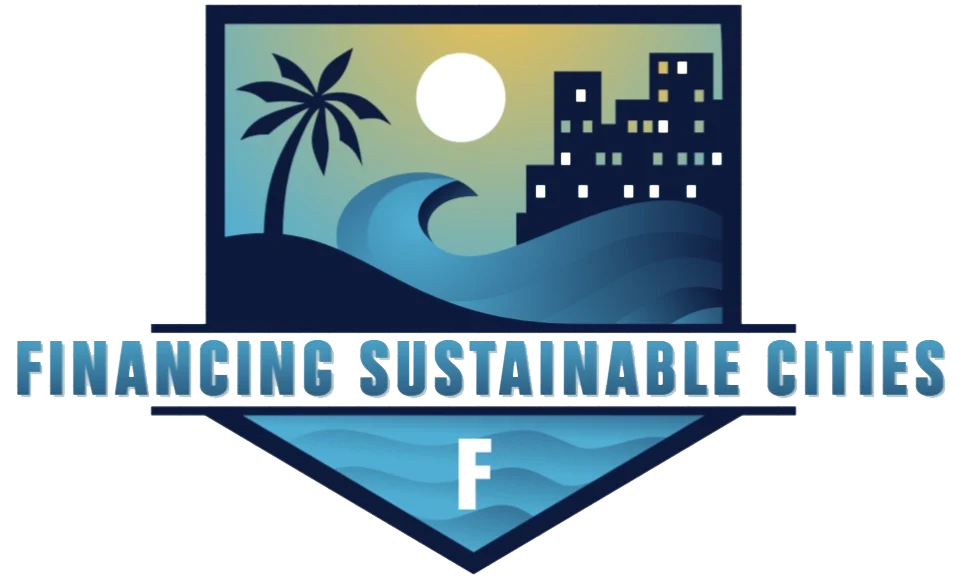The Initiative
In recent years, urban centers worldwide have taken a proactive stance in driving sustainable development to combat climate change and enhance the quality of life for their residents. The Financing Sustainable Cities Initiative (FSCI) plays a key role in this evolution. Established in 2015, this initiative is a collaborative effort between the WRI Ross Center for Sustainable Cities, the C40 Cities Climate Leadership Group, and the Citi Foundation. Each partner contributes distinct strengths: WRI offers research expertise, C40 provides a network of city leaders, and Citi Foundation brings a focus on urban economic progress.
The Initiative’s Vision and Mission

The primary aim of the FSCI is to help cities accelerate and expand investments in sustainable urban solutions, aiming to reduce emissions and improve living conditions. This mission involves transforming urban areas into places where people can thrive.
Transforming Ideas into Action
A significant challenge in urban development is moving from innovative concepts to practical implementation. The FSCI addresses this by developing business models that are both sustainable and financially viable. These models assist city governments and investors in aligning their interests, promoting effective collaboration to realize impactful projects. By creating a shared framework, the initiative helps diverse stakeholders find common ground, ensuring urban investments are effective and efficient.
Learning from Real-World Successes
To understand what works in sustainable urban development, the FSCI uses a comparative multi-case study research approach. This method focuses on three key areas:
- Mobility: Projects include bus rapid transit systems, bike-sharing schemes, and electric buses.
- Urban Energy: Initiatives focus on efficient buildings and municipal retrofits.
- Land Use: Strategies involve transit-oriented development.
The process involves exploratory mapping of urban solutions, expert consultation for city shortlisting, and assessment using WRI’s “business model framework.” This framework evaluates technical components, non-reimbursable funds, investment capital, and legal arrangements, ensuring that lessons are drawn from real-world experiences rather than theoretical possibilities.
| Key Area | Example Projects |
|---|---|
| Mobility | Bus rapid transit, bike-sharing, electric buses |
| Urban Energy | Energy-efficient buildings, municipal retrofits |
| Land Use | Transit-oriented development |
Data Policy: Open Access
The FSCI advocates for open access to information. All data produced by the initiative is available under a Creative Commons BY 4.0 license, which allows for free use, sharing, and adaptation. This open data policy encourages collaboration and innovation by removing barriers to access, enabling stakeholders to use the knowledge for various purposes.
Images and photographs on the platform may have separate licensing agreements, often sourced from photo-sharing sites with their own usage policies. As such, the Creative Commons license typically does not apply to these visual elements unless specified otherwise.
Data Policy: Open Access
The FSCI advocates for open access to information. All data produced by the initiative is available under a Creative Commons BY 4.0 license, which allows for free use, sharing, and adaptation. This open data policy encourages collaboration and innovation by removing barriers to access, enabling stakeholders to use the knowledge for various purposes.
Images and photographs on the platform may have separate licensing agreements, often sourced from photo-sharing sites with their own usage policies. As such, the Creative Commons license typically does not apply to these visual elements unless specified otherwise.

The Role of Partnerships
The FSCI thrives on collaboration. By bringing together the analytical skills of WRI, the leadership connections of C40 Cities, and the financial expertise of the Citi Foundation, the initiative forms a robust alliance. This partnership not only speeds up the implementation of sustainable urban solutions but also sets a benchmark for cities worldwide facing similar challenges.

Developing Business Models for Growth
Urban Mobility Innovations

Transportation is a critical area where innovative business models can make a significant impact. Traditional systems often grapple with congestion and pollution, but new solutions are changing the landscape. Bus rapid transit (BRT) systems, for example, offer a cost-effective alternative to metros, providing efficient public transport that can be implemented swiftly. Bike-sharing programs reduce car reliance and emissions, while electric buses offer a cleaner, more efficient option for public transit.
A key achievement of the FSCI is its focus on creating business models tailored to urban needs. These models go beyond theory, offering practical tools that cities can adopt to promote sustainable growth.

Energy Efficiency in Urban Development
Energy consumption is another focal point for sustainable development. Buildings are a major energy consumer, so improving their efficiency is vital. The FSCI promotes projects that retrofit existing structures with energy-saving technologies like advanced heating systems, LED lighting, and smart energy management. New buildings are designed with sustainability in mind, minimizing environmental impact while enhancing residents’ quality of life.
Integrating Land Use and Sustainability
Effective land use planning is crucial for sustainable cities. The FSCI emphasizes transit-oriented development (TOD), which integrates land use with transport planning. By concentrating development around transit hubs, TOD encourages public transport use and reduces car dependency, fostering vibrant, walkable communities. These mixed-use developments combine residential, commercial, and recreational spaces, boosting economic growth and creating resilient urban environments.
Challenges and Opportunities

Implementing sustainable solutions presents both challenges and opportunities. Cities must navigate regulatory complexities, secure funding, and engage diverse stakeholders. However, these challenges also open doors for innovation and collaboration.
Navigating Regulatory Challenges

Regulatory environments can vary widely between cities, affecting project implementation. The FSCI assists cities in understanding these regulations, developing strategies to work within them, and facilitating smoother execution of projects.
Securing Funding for Sustainable Projects

Securing funding is a critical hurdle for many sustainable projects. While these projects often lead to long-term savings and benefits, the initial investment can be substantial. The FSCI helps cities identify funding sources, from government grants and private investments to innovative financing methods like public-private partnerships.
Engage stakeholders and build consensus

The success of sustainable solutions hinges on stakeholder buy-in. This includes government officials, private investors, and the community. The FSCI offers guidance on engaging stakeholders, helping cities build consensus and foster cooperation among all involved parties.
